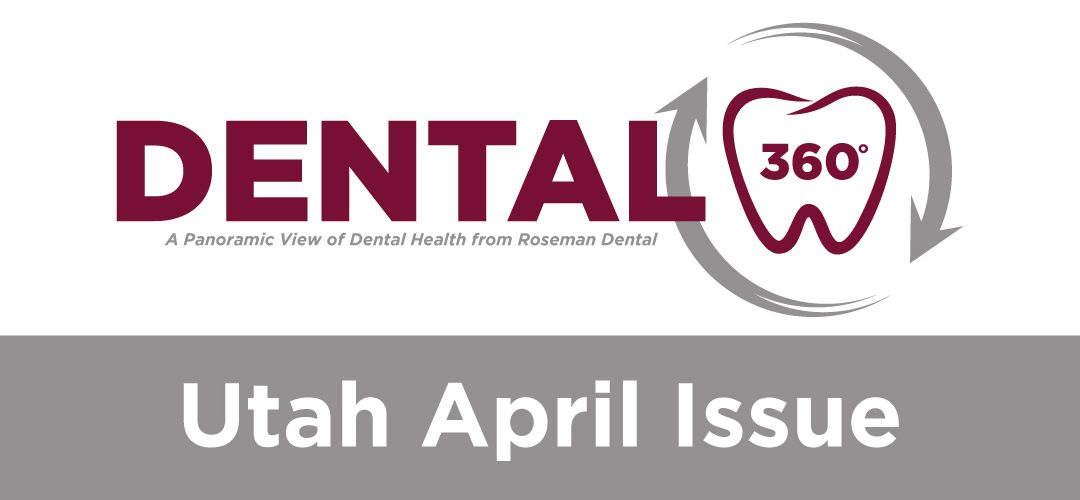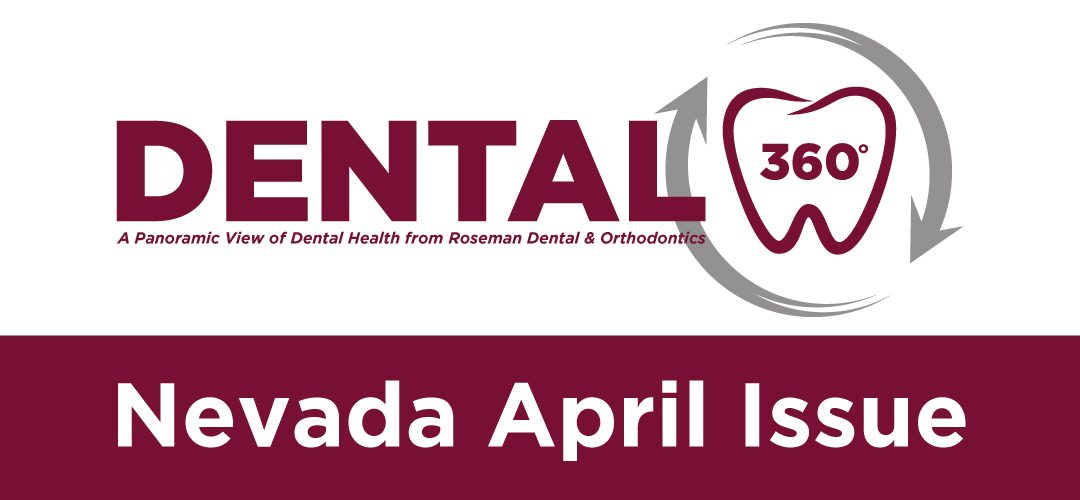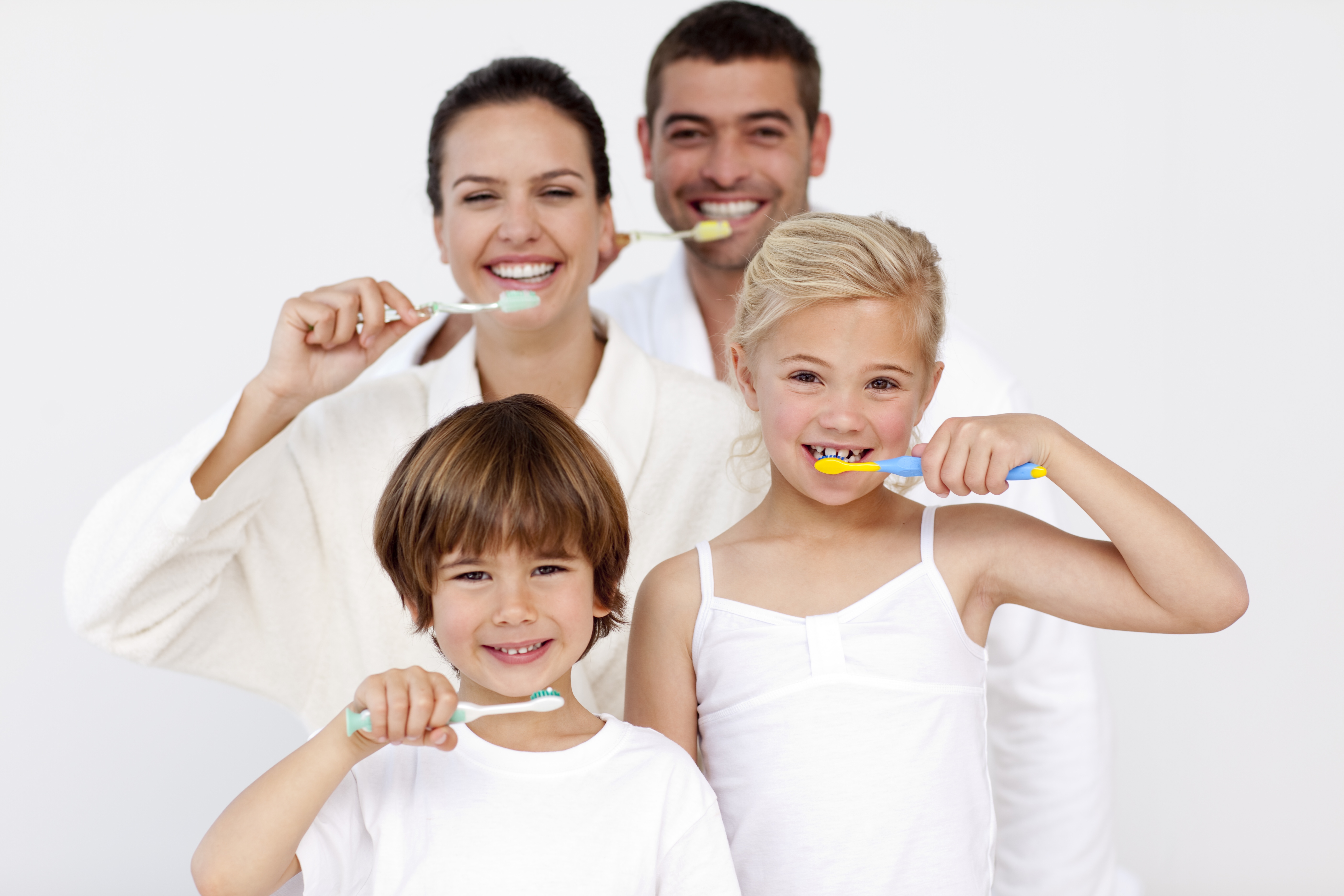by Roseman Dental | Feb 26, 2015 | Dental Clinic Blog, Oral Health, Roseman Dental - NV, Roseman Dental - UT
Although oral health is important at every stage of life, it is particularly important to establish proper oral habits in children that will serve as an ongoing investment in their health. According to the American Academy of Pediatrics, cavities and untreated dental decay are the most common diseases affecting children, outpacing even asthma and hay fever. It is recommended that children start seeing a dentist as early as one year of age.
Disease Detection
In addition to checking a child’s tooth development, early visits allow the dentist to check for signs of oral cancer or gum disease. There is also a correlation between caries (another name for cavities) in baby teeth and subsequent development of caries in the permanent teeth.
Primary Dentition
Your child’s dentist will make sure that your child’s primary teeth are coming in properly. These teeth, which precede the permanent teeth, start erupting as early as six months of age. While they do eventually fall out, primary teeth are important for developing chewing skills and learning to speak properly. The primary teeth also serve as markers for the proper alignment of the permanent teeth so it’s critical that they remain healthy throughout a child’s development.
Permanent Teeth
Your child will start developing his or her permanent teeth starting from about the age of 6. The dentist will want to ensure proper spacing and gum health as these teeth come in. He will likely discuss your child’s diet with you, as this is an important component of tooth enamel development. Since the permanent teeth will be with your child for a lifetime, it is particularly important that good oral health habits are established at an early age.
What You Can Do
One of the most important things you can do for your child’s oral health is to model good oral health behaviors. Establish and follow good habits yourself, such as brushing and flossing daily and visiting the dentist regularly, and emphasize the importance to your child. Children are great imitators. If you model with enthusiasm the good habits you want your child to adopt, your child is much more likely to copy what you are doing.
by Roseman Dental | Jan 21, 2015 | Dental Clinic Blog, Oral Health, Roseman Dental - NV, Roseman Dental - UT
Everyone wants to have a healthy mouth and beautiful smile, but what exactly does it mean to have good oral health? Some individuals may think that a beautiful smile can be attributed to healthy teeth, but in some cases teeth whitening products can make a smile appear healthy even when it is not. If you are not certain what it means to have good oral health or what steps you should take to improve the health of your mouth, here is a brief definition of what oral health entails.
What does “Oral” mean in Oral Health?
The word “oral” has Latin roots that refer to the entire mouth; not just the teeth. This means that a person who wants to improve their oral health should focus on all of the tissues in the mouth, including the tongue, chewing muscles, teeth, gums, lips, and connective tissues. Based on this definition, oral health is achieved when all of the various structures in the mouth are taken care of and are free from painful conditions.
In addition to gingivitis and tooth decay, other conditions that affect oral health include:
- Soft tissue lesions in the oral area
- Pharyngeal and oral cancers
- Cleft palate
- Cleft lip
- Other painful oral diseases or conditions
Why is Oral Health So Important?
The health and scientific communities are continuously discovering links between oral health and other dangerous physical conditions, such as:
- Premature births
- Stroke
- Heart disease
- Lung disease
If you are concerned about the health of your body in general, you should also be concerned about improving your oral health. In addition to being linked to various physical ailments, poor oral health can also make it difficult for individuals to eat, drink, and converse with others.
How can I Improve my Oral Health?
You can take matters into your own hands and improve your oral health by regularly brushing and flossing your teeth, rinsing your mouth with mouthwash, eating a healthy diet, and receiving regular dental checkups.

by Roseman Dental | Apr 12, 2021 | Dental 360, Dental Clinic Blog, Roseman Dental - UT
It’s a new month and Spring has finally arrived. The time has come where we can start enjoying the warmer weather, the beautiful flowers beginning to bloom, and the great outdoors. April is a month to be appreciative of the world around us, but it is also a time to bring awareness to Parkinson’s Disease and Oral Cancer. April is Parkinson’s Disease (PD) Awareness Month. PD is a nervous system disorder that affects movement. Approximately 60,000 Americans are diagnosed with PD each year and over 10 million people worldwide are living with it. Join Roseman Dental and the Parkinson’s Foundation this month to #KnowMorePD. This month is also Oral Cancer Awareness Month. Oral Cancer is cancer of the mouth and upper throat. Every hour, 24-hours-a-day, 365-days-a-year, someone dies of oral or oropharyngeal cancer. Yet, with early detection and treatment, Oral Cancer has high rates of survival. Make sure to get screened for Oral Cancer at your next dentist appointment.
During this month’s issue of Dental 360°, you’ll gain insight into how Parkinson’s Disease impacts dental health (link to article), a 360° look at Oral Cancer and gain a better understanding of tooth sensitivity and why you may have it (link to article).
Roseman Dental’s Dental 360° is a monthly e-newsletter. Each month you’ll receive a panoramic view of dental health. Dental health is key to your overall health and here at Roseman Dental, we are dedicated to improving not only your mouth, but your whole self. At our clinic we have an excellent team of licensed dentists, dental residents and students, and dental assistants and hygienists all focused on you and your family’s oral health. We offer comprehensive care, are a one stop shop for all your dental needs and offer dental care at a cost typically lower than what you would find at a traditional dental office. Roseman Dental has been serving its community since 2011 and we look forward to continuing to serve you and your family.
We hope you find Dental 360° helpful and informative. We look forward to connecting with you monthly.
Dental 360° April Articles
Parkinson’s Disease & Dental Health
Oral Cancer Awareness
Tooth Sensitivity & Why I Have It

by Roseman Dental | Apr 12, 2021 | Dental 360, Dental Clinic Blog, Roseman Dental - NV
It’s a new month and Spring has finally arrived. The time has come where we can start enjoying the warmer weather, the beautiful flowers beginning to bloom, and the great outdoors. April is a month to be appreciative of the world around us, but it is also a time to bring awareness to Parkinson’s Disease and Oral Cancer. April is Parkinson’s Disease (PD) Awareness Month. PD is a nervous system disorder that affects movement. Approximately 60,000 Americans are diagnosed with PD each year and over 10 million people worldwide are living with it. Join Roseman Dental & Orthodontics and the Parkinson’s Foundation this month to #KnowMorePD. This month is also Oral Cancer Awareness Month. Oral Cancer is cancer of the mouth and upper throat. Every hour, 24-hours-a-day, 365-days-a-year, someone dies of oral or oropharyngeal cancer. Yet, with early detection and treatment, Oral Cancer has high rates of survival. Make sure to get screened for Oral Cancer at your next dentist appointment.
During this month’s issue of Dental 360°, you’ll gain insight into how Parkinson’s Disease impacts dental health, a 360° look at Oral Cancer and the spring discounts Roseman Dental is offering for orthodontic treatment.
Roseman Dental & Orthodontics’ Dental 360° is a monthly e-newsletter. Each month you’ll receive a panoramic view of dental health. Dental health is key to your overall health and here at Roseman Dental & Orthodontics, we are dedicated to improving not only your mouth, but your whole self. At our clinic we have an excellent team of licensed dentists, orthodontists, orthodontic residents – 30 to be exact, and dental residents all focused on you and your family’s oral health. Roseman Dental & Orthodontics has been serving its community since 2009 and is a comprehensive, one stop shop for all your dental needs including dental, orthodontic and craniofacial cleft lip & palate treatment.
We hope you find Dental 360° helpful and informative. We look forward to connecting with you monthly.
Dental 360° April Articles
Parkinson’s Disease & Dental Health
Oral Cancer Awareness
Spring into a Fresh Smile – New Orthodontic Discounts
Subscribe to e-newsletter

by Roseman Dental | Jan 7, 2016 | Dental Clinic Blog, Oral Health, Roseman Dental - NV, Roseman Dental - UT
If you’re like most people, the coming of a new year is a time to think about making new year’s resolutions for a healthier, happier you. If you’re tired of making—and breaking—the same resolutions to save money, get more organized, or lose weight, think about these four simple resolutions you can make for a healthier mouth, which can lead to better overall health.
Eat More Fruits and Veggies
If this sounds like a resolution for weight loss, consider that eating more fruits and vegetables, and a healthier diet all around, can help you lose weight at the same time that it improves your oral health. Nutrients in fruits and vegetables help to build your immune system, improving your ability to fight off infection like gum disease, inflammation, and bacteria in your mouth. Raw, crispy fruits also help reduce plaque buildup on the teeth, leading to fresher breath and fewer cavities. As a bonus, it will also help you work toward that other weight loss resolution.
Quit Smoking
Smoking is one of the main causes of oral decay, including tooth discoloration, cavities, receding gums, infection, and lung and oral cancers. Both cigarettes and smokeless tobacco can double your risk of losing your teeth, but fortunately once you stop smoking, the risk of tooth loss and other diseases immediately decrease.
Start Flossing
If you think your mouth is healthy because you already brush twice a day, it could be a lot healthier if you add flossing to that routine. Flossing helps remove hard-to-reach plaque that builds up between teeth and near the gum line, where you toothbrush can’t reach, and where gum disease often begins. It only takes 2 minutes to floss your teeth, so if you add that to your 2 minutes of brushing in the morning and night, you’re still spending less than 10 minutes a day to get a healthier mouth.
Go See a Dentist
There is no substitute for seeing your dentist regularly for cleanings and check-ups. If you haven’t been to the dentist in a while, make a new year’s resolution to schedule an appointment. Your dentist can help you identify and prevent oral health problems before they become major issues, and may notice subtle signs of disease that you would otherwise not see on your own. There are affordable places you can go for dental care, including the Dental Clinic at Roseman University, if you don’t have a dentist or you can’t afford to go to the dentist because you don’t have insurance.





